 Tìm kiếm
Tìm kiếm
Chương I Hiến pháp 2013: Chế độ chính trị
| Số hiệu: | khongso | Loại văn bản: | Hiến pháp |
| Nơi ban hành: | Quốc hội | Người ký: | Nguyễn Sinh Hùng |
| Ngày ban hành: | 28/11/2013 | Ngày hiệu lực: | 01/01/2014 |
| Ngày công báo: | 29/12/2013 | Số công báo: | Từ số 1003 đến số 1004 |
| Lĩnh vực: | Bộ máy hành chính, Quyền dân sự | Tình trạng: | Còn hiệu lực |
TÓM TẮT VĂN BẢN
Một số điểm mới trong Hiến pháp 2013
Ngày 28/11/2013, Quốc hội đã thông qua Hiến pháp 2013 và Nghị quyết 64/2013/QH13 quy định một số điểm thi hành Hiến pháp 2013.
Theo đó, Hiến pháp 2013 có hiệu lực kể từ ngày 01/01/2014 và có nhiều điểm mới so với Hiến pháp 1992 (Chỉ giữ nguyên 7 điều, bổ sung 12 điều mới và sửa đổi 101 điều), đương cử như:
- Chương X là quy định mới hoàn toàn về Hội đồng bầu cử quốc gia, Kiểm toán nhà nước;
- Ghi nhận quyền sống; quy định quyền hiến mô, bộ phận cơ thể người, hiến xác;
- Mọi người có quyền tự do kinh doanh trong những ngành nghề mà pháp luật không cấm (đây là quy định tiến bộ so với Hiến pháp 1992);
Đồng thời quy định, các văn bản pháp luật ban hành trước ngày 01/01/2014 phải được rà soát lại để sửa đổi, bổ sung hoặc ban hành mới cho phù hợp với Hiến pháp 2013.
Việc sửa đổi Luật tổ chức Quốc hội, Chính phủ, Tòa án nhân dân; ban hành mới Luật tổ chức chính quyền địa phương… phải được trình Quốc hội xem xét thông qua chậm nhất vào tháng 10/2015.
Văn bản tiếng việt
Văn bản tiếng anh
Nước Cộng hòa xã hội chủ nghĩa Việt Nam là một nước độc lập, có chủ quyền, thống nhất và toàn vẹn lãnh thổ, bao gồm đất liền, hải đảo, vùng biển và vùng trời.
1. Nhà nước Cộng hòa xã hội chủ nghĩa Việt Nam là nhà nước pháp quyền xã hội chủ nghĩa của Nhân dân, do Nhân dân, vì Nhân dân.
2. Nước Cộng hòa xã hội chủ nghĩa Việt Nam do Nhân dân làm chủ; tất cả quyền lực nhà nước thuộc về Nhân dân mà nền tảng là liên minh giữa giai cấp công nhân với giai cấp nông dân và đội ngũ trí thức.
3. Quyền lực nhà nước là thống nhất, có sự phân công, phối hợp, kiểm soát giữa các cơ quan nhà nước trong việc thực hiện các quyền lập pháp, hành pháp, tư pháp.
Nhà nước bảo đảm và phát huy quyền làm chủ của Nhân dân; công nhận, tôn trọng, bảo vệ và bảo đảm quyền con người, quyền công dân; thực hiện mục tiêu dân giàu, nước mạnh, dân chủ, công bằng, văn minh, mọi người có cuộc sống ấm no, tự do, hạnh phúc, có điều kiện phát triển toàn diện.
1. Đảng Cộng sản Việt Nam - Đội tiên phong của giai cấp công nhân, đồng thời là đội tiên phong của Nhân dân lao động và của dân tộc Việt Nam, đại biểu trung thành lợi ích của giai cấp công nhân, nhân dân lao động và của cả dân tộc, lấy chủ nghĩa Mác - Lênin và tư tưởng Hồ Chí Minh làm nền tảng tư tưởng, là lực lượng lãnh đạo Nhà nước và xã hội.
2. Đảng Cộng sản Việt Nam gắn bó mật thiết với Nhân dân, phục vụ Nhân dân, chịu sự giám sát của Nhân dân, chịu trách nhiệm trước Nhân dân về những quyết định của mình.
3. Các tổ chức của Đảng và đảng viên Đảng Cộng sản Việt Nam hoạt động trong khuôn khổ Hiến pháp và pháp luật.
1. Nước Cộng hòa xã hội chủ nghĩa Việt Nam là quốc gia thống nhất của các dân tộc cùng sinh sống trên đất nước Việt Nam.
2. Các dân tộc bình đẳng, đoàn kết, tôn trọng và giúp nhau cùng phát triển; nghiêm cấm mọi hành vi kỳ thị, chia rẽ dân tộc.
3. Ngôn ngữ quốc gia là tiếng Việt. Các dân tộc có quyền dùng tiếng nói, chữ viết, giữ gìn bản sắc dân tộc, phát huy phong tục, tập quán, truyền thống và văn hóa tốt đẹp của mình.
4. Nhà nước thực hiện chính sách phát triển toàn diện và tạo điều kiện để các dân tộc thiểu số phát huy nội lực, cùng phát triển với đất nước.
Nhân dân thực hiện quyền lực nhà nước bằng dân chủ trực tiếp, bằng dân chủ đại diện thông qua Quốc hội, Hội đồng nhân dân và thông qua các cơ quan khác của Nhà nước.
1. Việc bầu cử đại biểu Quốc hội và đại biểu Hội đồng nhân dân được tiến hành theo nguyên tắc phổ thông, bình đẳng, trực tiếp và bỏ phiếu kín.
2. Đại biểu Quốc hội, đại biểu Hội đồng nhân dân bị cử tri hoặc Quốc hội, Hội đồng nhân dân bãi nhiệm khi không còn xứng đáng với sự tín nhiệm của Nhân dân.
1. Nhà nước được tổ chức và hoạt động theo Hiến pháp và pháp luật, quản lý xã hội bằng Hiến pháp và pháp luật, thực hiện nguyên tắc tập trung dân chủ.
2. Các cơ quan nhà nước, cán bộ, công chức, viên chức phải tôn trọng Nhân dân, tận tụy phục vụ Nhân dân, liên hệ chặt chẽ với Nhân dân, lắng nghe ý kiến và chịu sự giám sát của Nhân dân; kiên quyết đấu tranh chống tham nhũng, lãng phí và mọi biểu hiện quan liêu, hách dịch, cửa quyền.
1. Mặt trận Tổ quốc Việt Nam là tổ chức liên minh chính trị, liên hiệp tự nguyện của tổ chức chính trị, các tổ chức chính trị - xã hội, tổ chức xã hội và các cá nhân tiêu biểu trong các giai cấp, tầng lớp xã hội, dân tộc, tôn giáo, người Việt Nam định cư ở nước ngoài.
Mặt trận Tổ quốc Việt Nam là cơ sở chính trị của chính quyền nhân dân; đại diện, bảo vệ quyền và lợi ích hợp pháp, chính đáng của Nhân dân; tập hợp, phát huy sức mạnh đại đoàn kết toàn dân tộc, thực hiện dân chủ, tăng cường đồng thuận xã hội; giám sát, phản biện xã hội; tham gia xây dựng Đảng, Nhà nước, hoạt động đối ngoại nhân dân góp phần xây dựng và bảo vệ Tổ quốc.
2. Công đoàn Việt Nam, Hội nông dân Việt Nam, Đoàn thanh niên cộng sản Hồ Chí Minh, Hội liên hiệp phụ nữ Việt Nam, Hội cựu chiến binh Việt Nam là các tổ chức chính trị - xã hội được thành lập trên cơ sở tự nguyện, đại diện và bảo vệ quyền, lợi ích hợp pháp, chính đáng của thành viên, hội viên tổ chức mình; cùng các tổ chức thành viên khác của Mặt trận phối hợp và thống nhất hành động trong Mặt trận Tổ quốc Việt Nam.
3. Mặt trận Tổ quốc Việt Nam, các tổ chức thành viên của Mặt trận và các tổ chức xã hội khác hoạt động trong khuôn khổ Hiến pháp và pháp luật. Nhà nước tạo điều kiện để Mặt trận Tổ quốc Việt Nam các tổ chức thành viên của Mặt trận và các tổ chức xã hội khác hoạt động.
Công đoàn Việt Nam là tổ chức chính trị - xã hội của giai cấp công nhân và của người lao động được thành lập trên cơ sở tự nguyện, đại diện cho người lao động, chăm lo và bảo vệ quyền, lợi ích hợp pháp, chính đáng của người lao động; tham gia quản lý nhà nước, quản lý kinh tế - xã hội; tham gia kiểm tra, thanh tra, giám sát hoạt động của cơ quan nhà nước, tổ chức, đơn vị, doanh nghiệp về những vấn đề liên quan đến quyền, nghĩa vụ của người lao động; tuyên truyền, vận động người lao động học tập, nâng cao trình độ, kỹ năng nghề nghiệp, chấp hành pháp luật, xây dựng và bảo vệ Tổ quốc.
1. Tổ quốc Việt Nam là thiêng liêng, bất khả xâm phạm.
2. Mọi hành vi chống lại độc lập, chủ quyền, thống nhất và toàn vẹn lãnh thổ, chống lại sự nghiệp xây dựng và bảo vệ Tổ quốc đều bị nghiêm trị.
Nước Cộng hòa xã hội chủ nghĩa Việt Nam thực hiện nhất quán đường lối đối ngoại độc lập, tự chủ, hòa bình, hữu nghị, hợp tác và phát triển; đa phương hóa, đa dạng hóa quan hệ, chủ động và tích cực hội nhập, hợp tác quốc tế trên cơ sở tôn trọng độc lập, chủ quyền và toàn vẹn lãnh thổ, không can thiệp vào công việc nội bộ của nhau, bình đẳng, cùng có lợi; tuân thủ Hiến chương Liên hợp quốc và điều ước quốc tế mà Cộng hòa xã hội chủ nghĩa Việt Nam là thành viên; là bạn, đối tác tin cậy và thành viên có trách nhiệm trong cộng đồng quốc tế vì lợi ích quốc gia, dân tộc, góp phần vào sự nghiệp hòa bình, độc lập dân tộc, dân chủ và tiến bộ xã hội trên thế giới.
1. Quốc kỳ nước Cộng hòa xã hội chủ nghĩa Việt Nam hình chữ nhật, chiều rộng bằng hai phần ba chiều dài, nền đỏ, ở giữa có ngôi sao vàng năm cánh.
2. Quốc huy nước Cộng hòa xã hội chủ nghĩa Việt Nam hình tròn, nền đỏ, ở giữa có ngôi sao vàng năm cánh, xung quanh có bông lúa, ở dưới có nửa bánh xe răng và dòng chữ Cộng hòa xã hội chủ nghĩa Việt Nam.
3. Quốc ca nước Cộng hòa xã hội chủ nghĩa Việt Nam là nhạc và lời của bài Tiến quân ca.
4. Quốc khánh nước Cộng hòa xã hội chủ nghĩa Việt Nam là ngày Tuyên ngôn độc lập 2 tháng 9 năm 1945.
5. Thủ đô nước Cộng hòa xã hội chủ nghĩa Việt Nam là Hà Nội.
The Socialist Republic of Vietnam is an independent and sovereign country enjoying unity and integrity of territory, including the mainland, islands, seas and airspace.
1. The State of the Socialist Republic of Vietnam is a socialist state ruled by law and of the People, by the People and for the People.
2. The Socialist Republic of Vietnam is the country where the People are the masters; all the state power belongs to the People and is based on the alliance of the working class, the peasantry and the intelligentsia.
3. The state power is unified and delegated to state agencies which coordinate with and control one another in the exercise of the legislative, executive and judicial powers.
The State shall guarantee and promote the People’s right to mastery; recognize, respect, protect and guarantee human rights and citizens’ rights; and pursue the goal of a prosperous people and a strong, democratic, equitable and civilized country, in which all people enjoy an abundant, free and happy life and are given conditions for their comprehensive development.
1. The Communist Party of Vietnam - the Vanguard of the working class, concurrently the vanguard of the laboring people and Vietnamese nation, faithfully representing the interests of the working class, laboring people and entire nation, and acting upon the Marxist-Leninist doctrine and Ho Chi Minh Thought, is the force leading the State and society.
2. The Communist Party of Vietnam is closely associated with the People, shall serve the People, shall submit to the supervision of the People, and is accountable to the People for its decisions.
3. Organizations and members of the Communist Party of Vietnam shall operate within the framework of the Constitution and law.
1. The Socialist Republic of Vietnam is a unified nation of all ethnicities living together in the country of Vietnam.
2. All the ethnicities are equal and unite with, respect and assist one another for mutual development; all acts of discrimination against and division of the ethnicities are prohibited.
3. The national language is Vietnamese. Every ethnic group has the right to use its own spoken and written language to preserve its own identity and to promote its fine customs, practices, traditions and culture.
4. The State shall implement a policy of comprehensive development and create the conditions for the minority ethnicities to fully utilize their internal strengths and develop together with the country.
The People shall exercise the state power in the form of direct democracy and of representative democracy through the National Assembly, People’s Councils and other state agencies.
1. The elections of deputies to the National Assembly and People’s Councils must be conducted on the principle of universal, equal, direct and secret suffrage.
2. A National Assembly deputy or a People’s Council deputy may be removed from office by the voters or the National Assembly or the People’s Council, when he or she is no longer worthy of the confidence of the People.
1. The State shall be organized and operate in accordance with the Constitution and law, manage society by the Constitution and law, and implement the principle of democratic centralism.
2. All state agencies, cadres, civil servants and public employees shall show respect for the People, conscientiously serve the People, maintain close contact with the People, listen to their opinions and submit to their supervision; resolutely combat corruption, waste, and all manifestations of bureaucracy, arrogance and authoritarianism.
1. The Vietnam Fatherland Front is a political alliance and a voluntary union of the political organization, socio-political organizations and social organizations, and prominent individuals representing their class, social strata, ethnicity or religion and overseas Vietnamese.
The Vietnam Fatherland Front shall constitute the political base of the people’s administration; represent and protect the lawful and legitimate rights and interests of the People; rally and fully utilize the strength of the great national unity, exercise democracy and promote social consensus; conduct social supervision and criticism; and participate in the building of the Party and the State, and in people’s external relations’ activities, thus contributing to national construction and defense.
2. The Trade Union of Vietnam, the Vietnam Peasants’ Association, the Ho Chi Minh Communist Youth Union, the Vietnam Women’s Union and the Vietnam War Veterans’ Association are socio-political organizations established on a voluntary basis to represent and protect the lawful and legitimate rights and interests of their members; and, together with other member organizations of the Vietnam Fatherland Front, coordinate and unify action within the Front.
3. The Vietnam Fatherland Front, its member organizations and other social organizations shall operate within the framework of the Constitution and law. The State shall create the conditions for the Vietnam Fatherland Front, its member organizations and other social organizations to operate.
The Trade Union of Vietnam is a socio-political organization of the working class and laborers voluntarily established to represent laborers, care for and protect the lawful and legitimate rights and interests of laborers; participate in the state management and socio-economic management; participate in the examination, inspection and supervision of the operations of state agencies, organizations, units and enterprises regarding issues related to the rights and obligations of laborers; and mobilize laborers to learn to improve their professional qualifications and skills, abide by law, and build and defend the Fatherland.
1. The Vietnamese Fatherland is sacred and inviolable.
2. All acts against independence, sovereignty, unity and territorial integrity, or against the construction and defense, of the Fatherland must be severely punished.
The Socialist Republic of Vietnam shall consistently implement its foreign policy of independence, self-reliance, peace, friendship, cooperation and development; multilateralization and diversification of external relations, proactive and active international integration and cooperation, on the basis of respect for each other’s independence, sovereignty and territorial integrity, non-interference in each other’s internal affairs, and equality and mutual benefit; abide by the Charter of the United Nations and treaties to which the Socialist Republic of Vietnam is a contracting party; act as a friend, reliable partner and responsible member of the international community for the sake of national interests, and contribute to the cause of peace, national independence, democracy and social progress in the world.
1. The national flag of the Socialist Republic of Vietnam is rectangular in shape, with its width equal to two-thirds of its length; in the middle of a red background is a five-pointed gold star.
2. The national emblem of the Socialist Republic of Vietnam is circular in shape; in the middle of a red background is a five-pointed gold star encircled by rice ears, below which is half a cogwheel and the inscription “The Socialist Republic of Vietnam”.
3. The national anthem of the Socialist Republic of Vietnam is the music and lyrics of the song “Tien quan ca” (March to the Front).
4. The National Day of the Socialist Republic of Vietnam is the day of the Proclamation of Independence, the Second of September 1945.
5. The capital of the Socialist Republic of Vietnam is Hanoi.
Văn bản liên quan
Cập nhật
Bài viết liên quan
Bạo hành trẻ em bị phạt thế nào? Có phải đi tù không mới nhất 2025?

Bạo hành trẻ em bị phạt thế nào? Có phải đi tù không mới nhất 2025?
Bạo hành trẻ em luôn là một vấn đề nghiêm trọng trong xã hội, không chỉ ảnh hưởng đến sự phát triển của trẻ mà còn gây tổn hại lớn đến tương lai của các em. Vấn đề này đã thu hút sự quan tâm đặc biệt của cộng đồng và pháp luật. Theo các quy định mới nhất của pháp luật Việt Nam vào năm 2025, hành vi bạo hành trẻ em sẽ bị xử lý nghiêm minh, với những hình phạt nặng nề đối với người phạm tội. Trong bài viết này, chúng ta sẽ tìm hiểu về các hình thức bạo hành trẻ em, mức độ phạt và những chế tài xử lý đối với hành vi này, đặc biệt là việc bị đi tù và mức án cụ thể trong trường hợp vi phạm. 24/12/2024Tài sản gắn liền với đất gồm những loại nào? 02 tài sản gắn liền với đất được cấp sổ đỏ mới nhất 2025
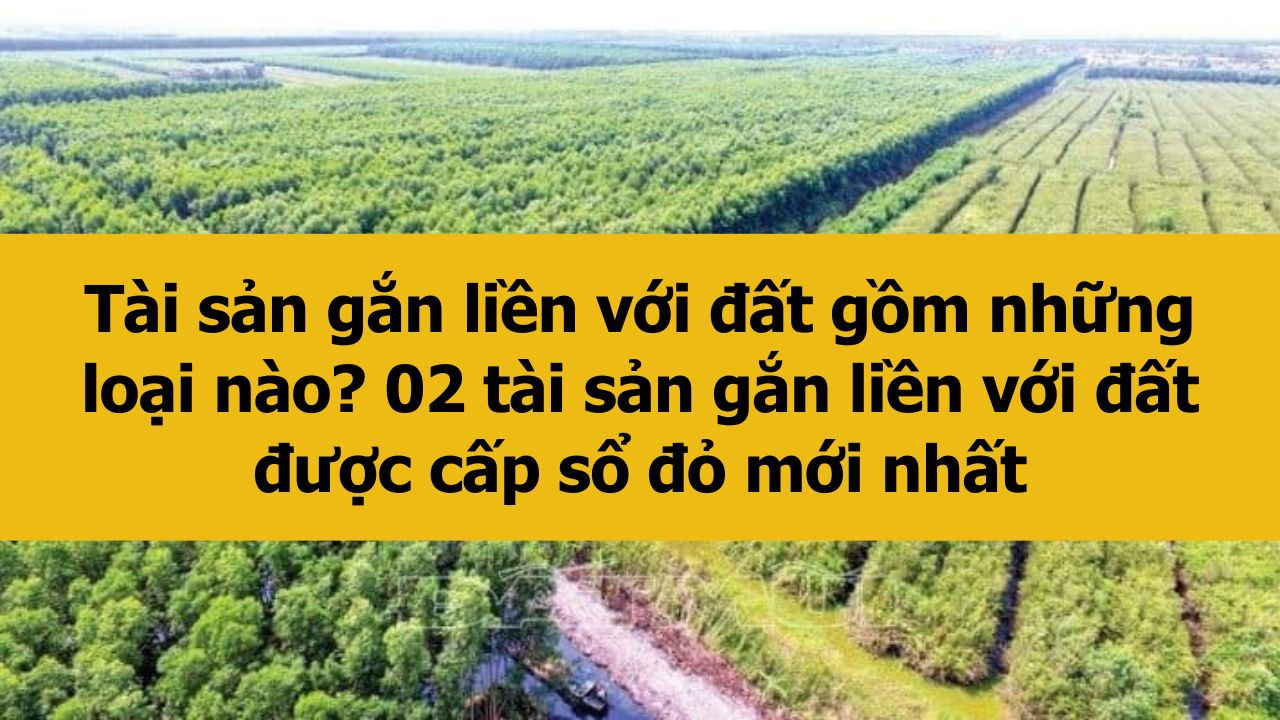
Tài sản gắn liền với đất gồm những loại nào? 02 tài sản gắn liền với đất được cấp sổ đỏ mới nhất 2025
Tài sản gắn liền với đất là những tài sản không thể tách rời khỏi đất đai, thường có giá trị lớn và chịu sự quản lý chặt chẽ của pháp luật. Những tài sản này có thể được chuyển nhượng, cho thuê, thế chấp và có ảnh hưởng trực tiếp đến quyền sử dụng đất của chủ sở hữu. Cùng với sự phát triển của các quy định pháp lý, việc cấp Giấy chứng nhận quyền sử dụng đất (sổ đỏ) đối với những tài sản này cũng ngày càng rõ ràng hơn. Vậy, trong năm 2025, những tài sản gắn liền với đất nào sẽ được cấp sổ đỏ theo quy định mới nhất? Cùng tìm hiểu 02 loại tài sản gắn liền với đất được cấp sổ đỏ hiện nay. 09/12/2024Quyền sử dụng đất là gì? Quyền sử dụng đất được xếp vào tài sản loại nào?
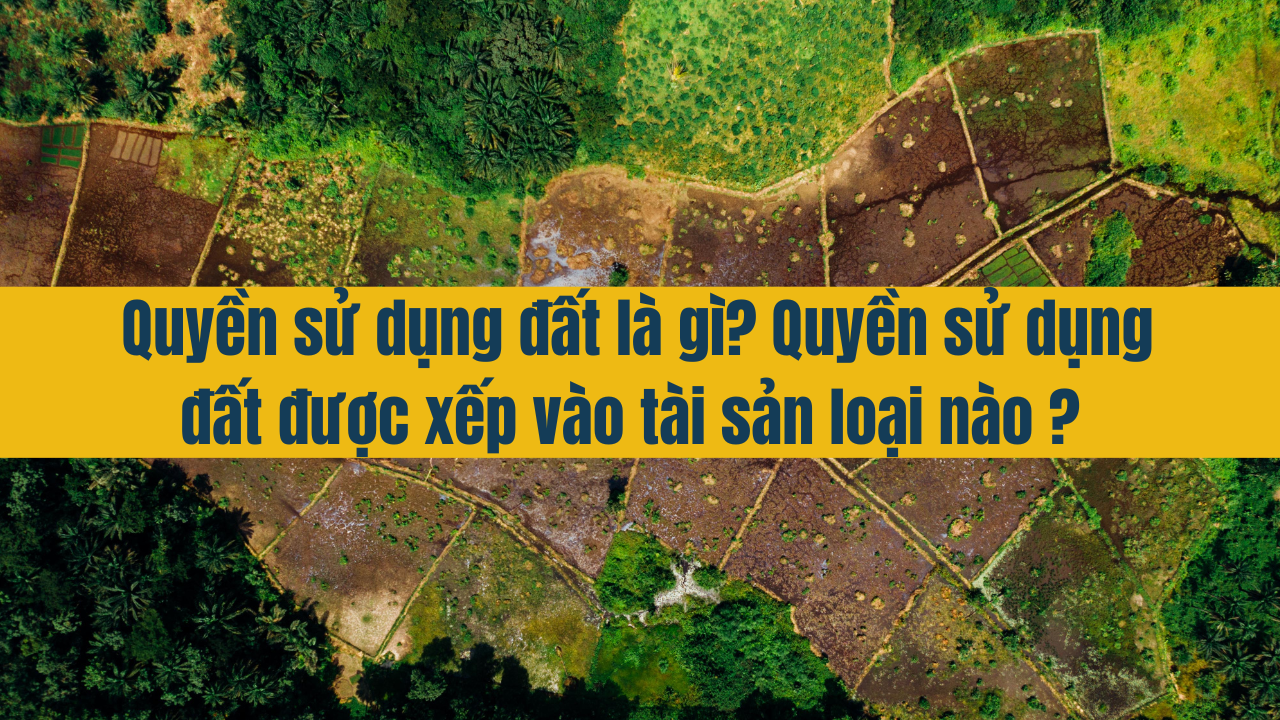
Quyền sử dụng đất là gì? Quyền sử dụng đất được xếp vào tài sản loại nào?
Quyền sử dụng đất là gì và quyền sử dụng đất được xếp vào tài sản loại nào? Quyền sử dụng đất không chỉ liên quan đến việc sử dụng một diện tích đất mà còn gắn liền với những quyền lợi, nghĩa vụ pháp lý và các giao dịch tài chính. Việc xác định quyền sử dụng đất thuộc loại tài sản nào cũng đóng vai trò quan trọng trong việc áp dụng pháp luật, bảo vệ quyền lợi hợp pháp của người sử dụng đất. 06/12/2024Sử dụng bao lì xì in hình sổ đỏ bị phạt 3 năm tù có đúng không?
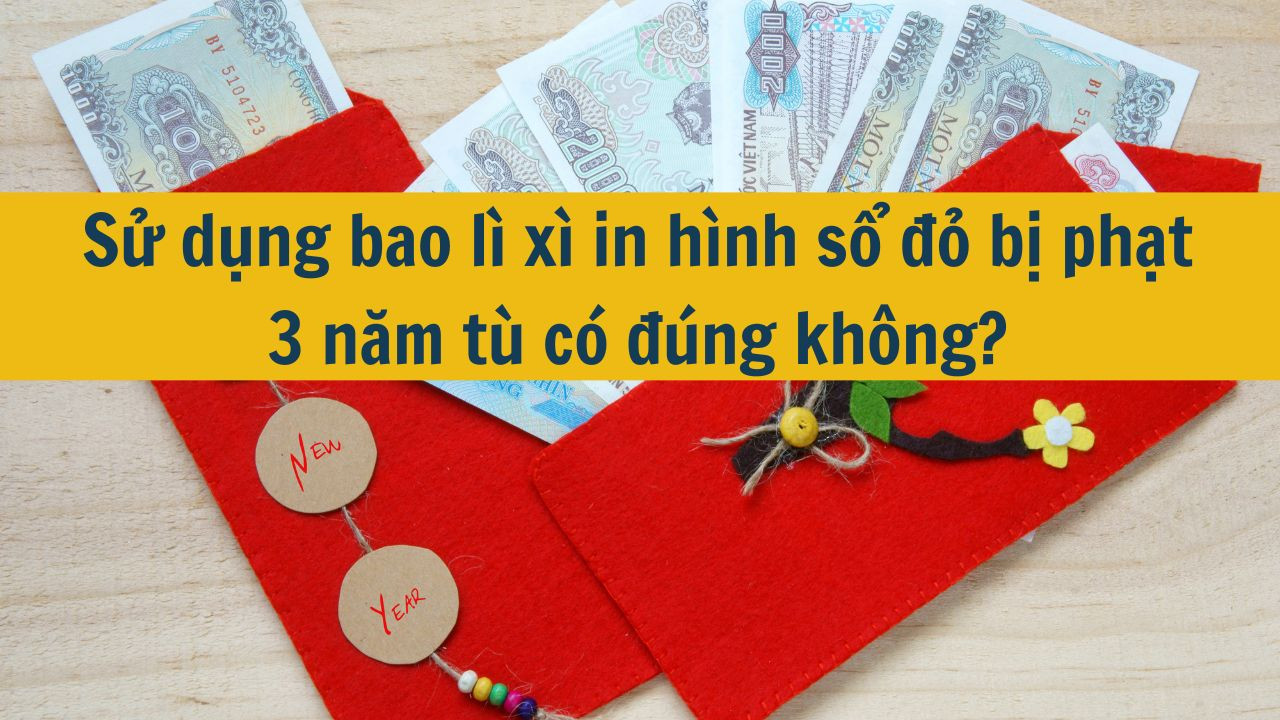
Sử dụng bao lì xì in hình sổ đỏ bị phạt 3 năm tù có đúng không?
Việc tặng lì xì là truyền thống quen thuộc của người Việt mỗi dịp Tết. Gần đây, bao lì xì in hình sổ đỏ trở nên phổ biến, nhưng cũng gây tranh cãi về tính hợp pháp. Liệu sử dụng bao lì xì sổ đỏ có vi phạm pháp luật hay không? 19/11/2024Phân tích các nguyên tắc cơ bản của luật lao động hiện nay ?

Phân tích các nguyên tắc cơ bản của luật lao động hiện nay ?
Nguyên tắc của ngành luật, theo quan niệm của lí luận chung về nhà nước và pháp luật, được hiểu là những nguyên lí, tư tưởng chủ đạo, mang tính xuất phát điểm xuyên suốt toàn bộ quá trình soạn thảo, ban hành, giải thích, thực thi, áp dụng pháp luật. 15/11/2024Sàm sỡ người khác có bị xem là vi phạm pháp luật hay không?

Sàm sỡ người khác có bị xem là vi phạm pháp luật hay không?
Thỉnh thoảng ở nơi công cộng hay nơi làm việc một số bạn, đặc biệt là nữ thường gặp phải những trường hợp bị sàm sỡ, bị quấy rối tình dục bởi những tên “yêu râu xanh” hay chính sếp của mình. Nhiều bạn cảm thấy hoảng loạn, lo sợ và ngại nói ra nhưng không biết phải giải quyết vấn đề này như thế nào? 15/11/2024Những quy định mới về quyền con người trong Hiến pháp năm 2013
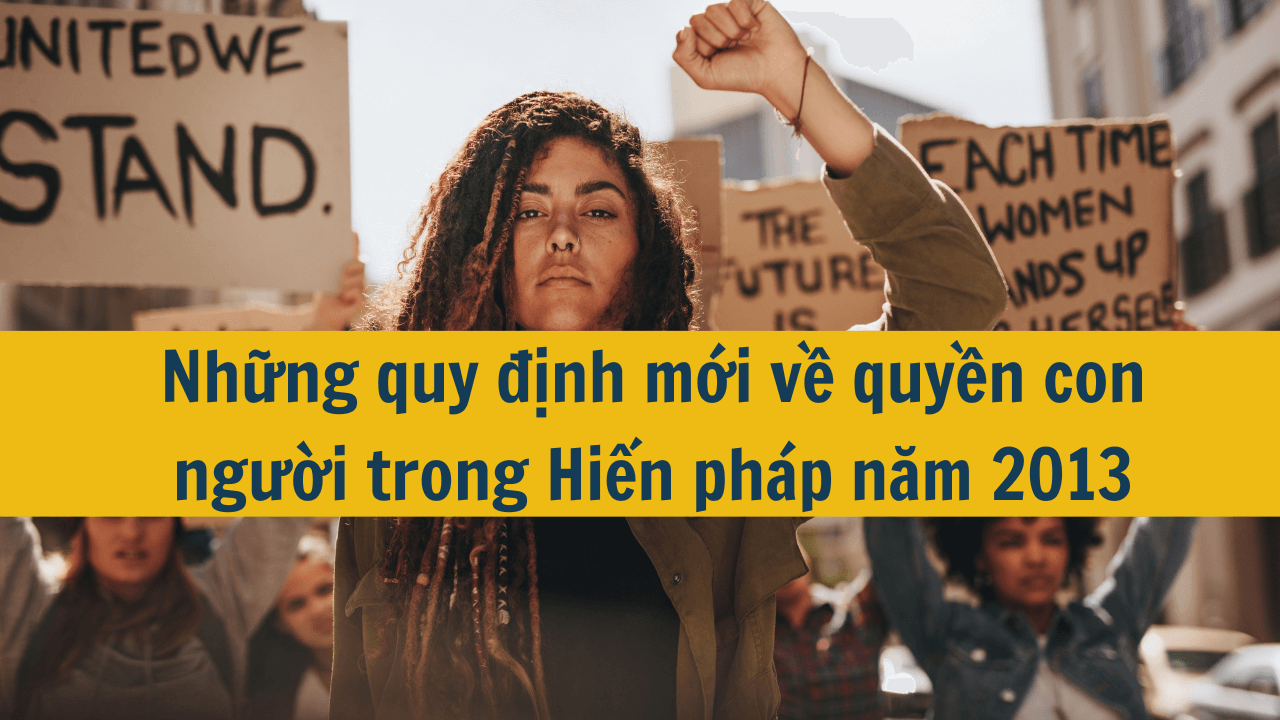
Những quy định mới về quyền con người trong Hiến pháp năm 2013
Hiến pháp năm 2013 đã đặt nền móng cho thời kỳ đẩy mạnh hội nhập quốc tế và phát triển của đất nước ta. So với các bản hiến pháp trước đây, đặc biệt là Hiến pháp 1992, Hiến pháp 2013 có những phát triển mới trong chế định về quyền con người 20/11/2024Quy định pháp luật về quyền chủ tịch nước năm 2024
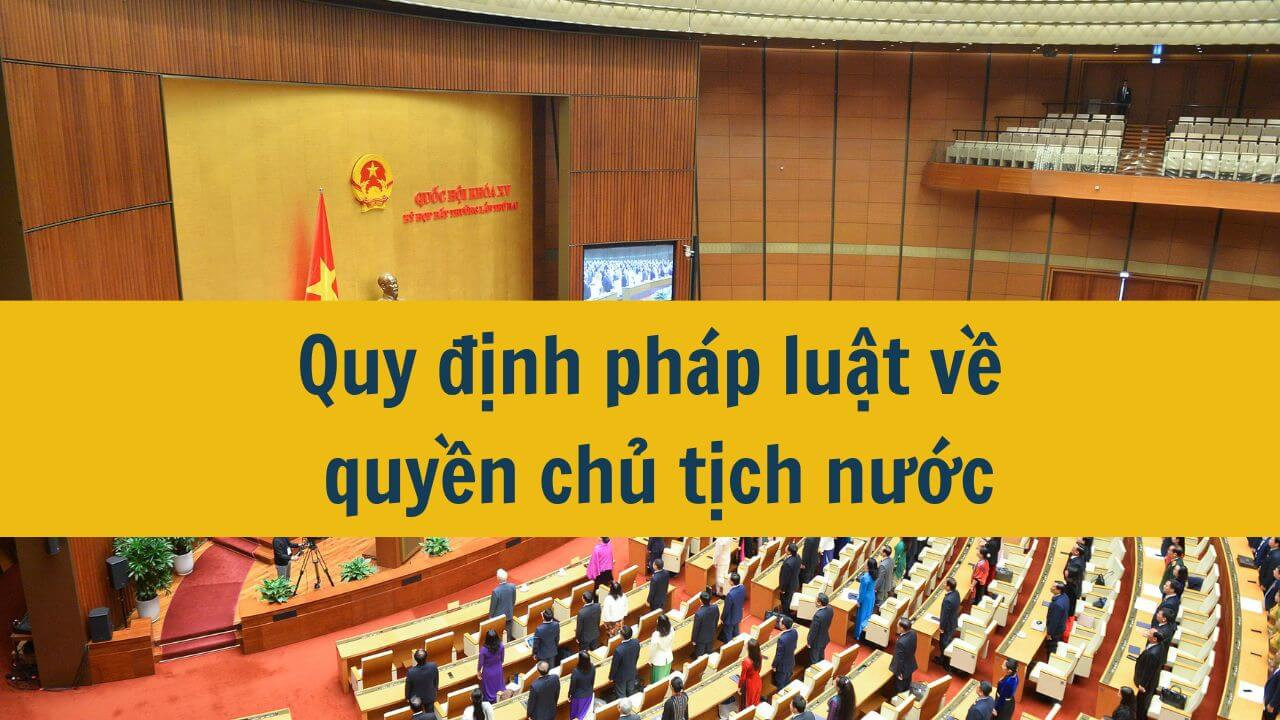
Quy định pháp luật về quyền chủ tịch nước năm 2024
Quyền chủ tịch nước là một khái niệm trong các văn bản pháp luật và thảo luận chính trị. Thực tế trong một số hoàn cảnh nhằm đảm bảo an ninh, ổn định và phát triển của đất nước, cần có người thay Chủ tịch nước giữ quyền Chủ tịch nước. Việc làm sáng tỏ các quy định pháp luật liên quan đến quyền chủ tịch nước sẽ giúp nâng cao nhận thức của người dân về vai trò của Nhà nước trong đời sống xã hội. 12/11/2024Thủ tướng Chính phủ Nước Cộng hòa xã hội chủ nghĩa Việt Nam do ai bầu ra?
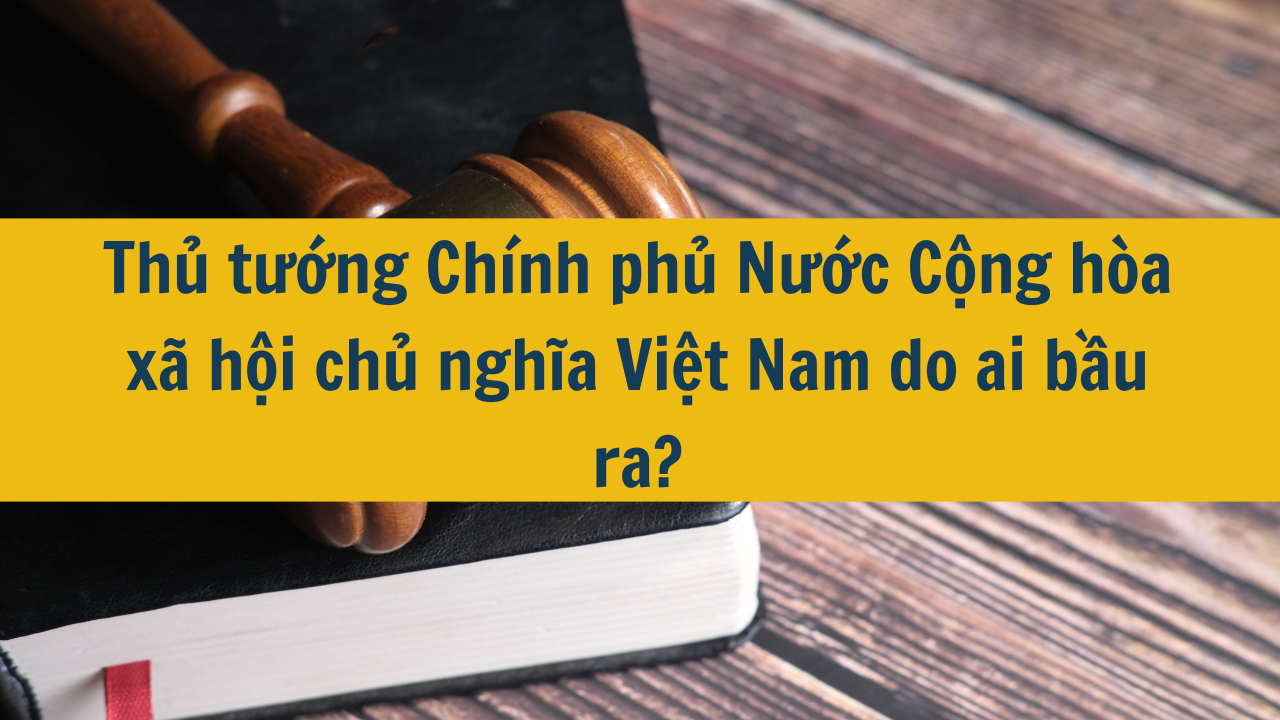
Thủ tướng Chính phủ Nước Cộng hòa xã hội chủ nghĩa Việt Nam do ai bầu ra?
Trong bài viết này, chúng ta sẽ cùng khám phá một câu hỏi quan trọng về hệ thống chính trị Việt Nam. "Thủ tướng Chính phủ Nước Cộng hòa xã hội chủ nghĩa Việt Nam do ai bầu ra?" Qua đó, bài viết sẽ cung cấp cái nhìn tổng quan về quy trình bầu cử Thủ tướng, vai trò của Quốc hội trong việc xác nhận các chức danh lãnh đạo, cũng như ý nghĩa của cơ chế này đối với sự phát triển và ổn định của đất nước. 10/11/2024Cơ cấu tổ chức của Chính phủ nước Cộng hòa xã hội chủ nghĩa Việt Nam? Người đứng đầu Chính phủ là ai?
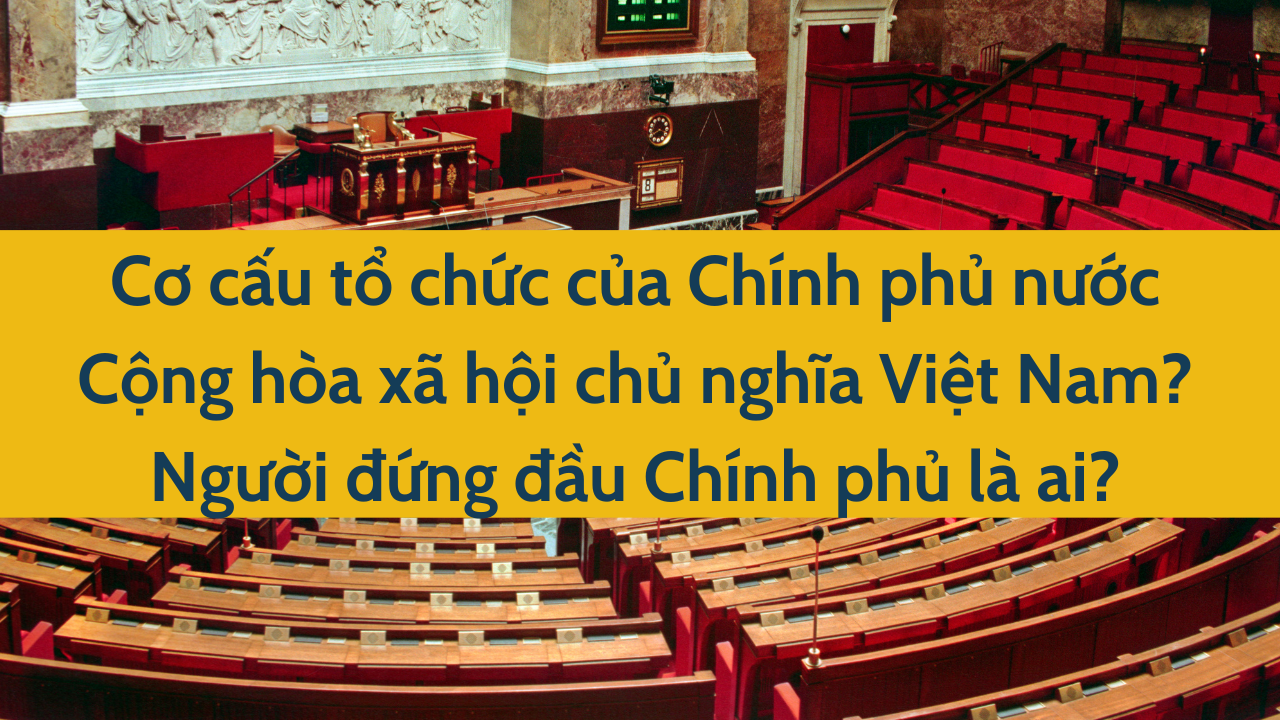

 Hiến pháp 2013 (Bản Word)
Hiến pháp 2013 (Bản Word)
 Hiến pháp 2013 (Bản Pdf)
Hiến pháp 2013 (Bản Pdf)